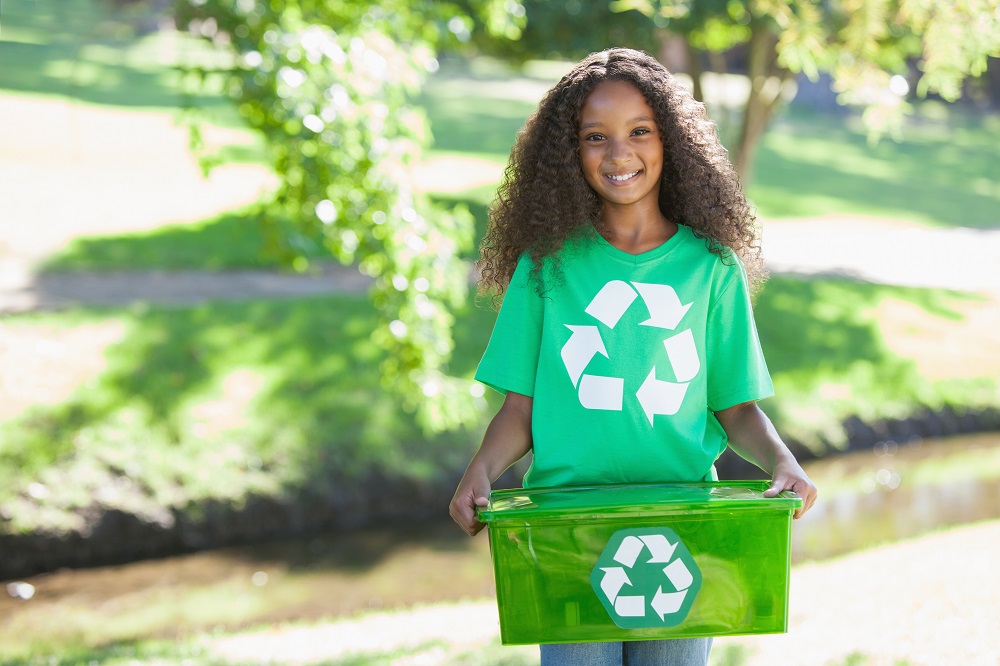
16 Jan The Do’s & Don’ts of Recycling Tricky Household Items
Every greenie out there knows about the basics of recycling – cans, glass bottles, papers and plastics can be easily collected in the household recycle bin, then picked up by the municipality or taken to the nearest local depot. But what about those items that don’t fall into any of these simple categories? Here are some handy, practical “do and don’t” tips to recycling or safely disposing of those household materials you might struggle with.
Clothing & Fabrics Recycling
We’re often quick to dispose of old or out-grown clothes long before they’ve reached the end of their usable lifespan.
- DO donate old clothes to local charity shops or initiatives like The Street Store.
- DON’T donate clothes that are dirty, damaged and unwearable. Turn old torn clothing into cleaning cloths for your home instead!
E-Waste
Electrical equipment like mobile phones, household appliances and computer equipment can be broken up into smaller parts; these parts contain material that is potentially valuable but also potentially hazardous.
- DON’T simply throw old electronic equipment away. E-waste is one of the fastest-growing types of waste in South Africa.
- DO choose a manufacturer or retailer that takes back old mobile phones or electronics for recycling (eg Nokia Care Centres, Hi-Fi Corp stores.
- DO sell or donate your old electronics to those who can make use of them.
- DO contact the e-Waste Association of South Africa (eWASA) to collect and dispose of your e-waste for you!
Medical/ Clinical Waste
Nappies, sanitary ware, medication and medical supplies (syringes etc). These items all have the potential to pose a health risk and spread infection, and must be disposed of carefully.
- DO look for doctor’s or manufacturer’s instructions on how to dispose of medical supplies.
- DO recycle glass and plastic medicine bottles or tubs accordingly, once they are empty and have been properly washed.
- DO choose reusable (cloth) diapers whenever possible.
- If you use disposable nappies, DO choose biodegradable or compostable brands.
- When composting diapers, DO dispose of as much solid waste as possible into the toilet beforehand, and DON’T use the compost on plants you are planning to eat. (Many people also prefer to only compost wet nappies, not soiled ones.)
- DO wear gloves and be extra-careful when disposing of needles or syringes; and DO use a needle clipper to safely snip off the ends of the needles before disposal.
- The average woman uses up to 14 000 sanitary pads or tampons in her lifetime; to drastically decrease the impact of this on the environment, choose organic, biodegradable sanitary products, or consider a reusable menstrual cup.
Recycling Paints & Oils
Paint, old paintbrushes and motor oil must all be disposed of carefully as they are full of chemicals and can wreak havoc on the environment.
- DON’T pour paint or oil down the drain.
- DO look for disposal and recycling instructions on the packaging of all products.
- DO donate old or unused paint, varnish, brushes etc. to those who can reuse them.
- DO choose to use eco-friendly paints wherever possible.
- DON’T ever pour motor oil on the ground, as it is a major toxic pollutant.
- DO store used oil safely by funnelling it into a tightly sealed container.
- DO contact The Used Oil Company or Collect-A-Can for information on safe collection, recycling or disposal of motor oil.
Batteries
These little powerhouses are part of daily life as they keep our favourite gadgets running – but what happens when your batteries run out of juice?
- DON’T use ordinary disposable batteries; they cannot be recycled as the material recovery rate is too small, and can also not be disposed of in ordinary household waste as they contain hazardous chemicals.
- DO educate yourself about safe battery disposal.
- DO use rechargeable and eco-friendly batteries wherever possible.
- DO read up on our Greenergy batteries and what makes them superior to ordinary batteries.
Knowledge is power folks and every effort helps to reduce the pollution of our precious planet – so before you bin something, be sure to do a little research and educate yourself about the safest, greenest way to dispose of it or recycle it.



Lisa
Posted at 13:12h, 08 SeptemberHi! I’ve been looking for a place to take old dried paint that we “inherited” from our previous home owners. They are really large tins (I think 25 litres) and all unusable. I can’t seem to find a local place that accepts old paint tins which will dispose of it responsibly. Do you know of an organisation or place that accepts old paint? I live in the Table View (Cape Town) area. Thank you!
Eileen morrison
Posted at 13:27h, 15 DecemberHi there. Where can I take polystyrene for recycling. I used to take it to the local recycling depot but recently was told they no longer wanted it. I live in Fairlands, Johannesburg. I got hold of a chap called Sam who collects but he operates out of Marlboro. Quite a distance to drive , will if I have no other choice, but would appreciate knowing of somewhere closer. Thanks. Eileen